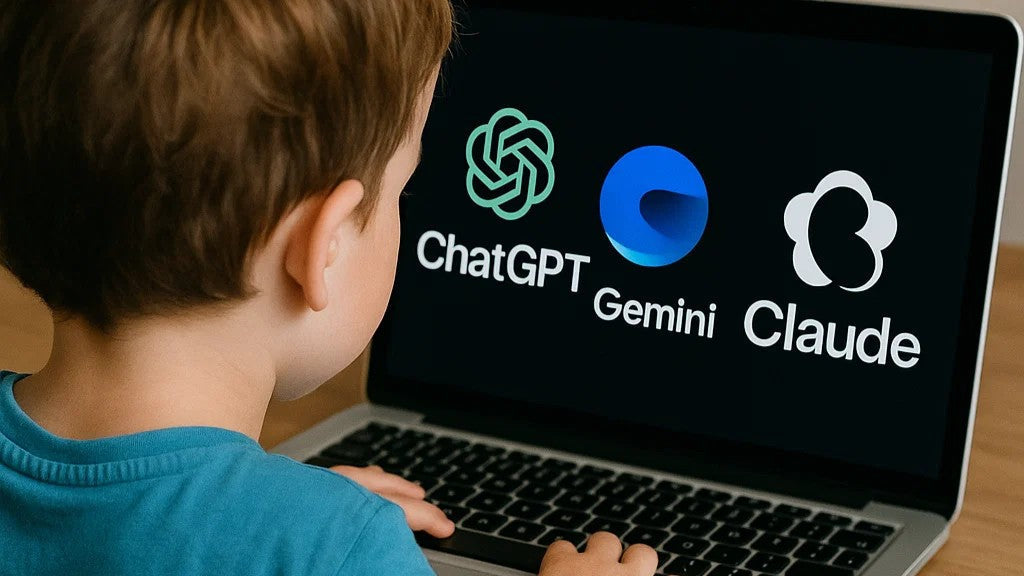While tools like ChatGPT can be incredibly powerful and convenient, they raise important questions about how the next generation will engage with them. AI is no longer a distant, futuristic technology, it’s woven into the apps, websites, and devices we use daily.
Our children are growing up in a world where interacting with AI will be as common
as using a search engine or sending a text message.
So the question is not if, but when and how we should introduce our children to AI?
I think that journey all starts with us...
Experience AI for Yourself
I would encourage you to try AI for yourself. Go to a reputable site like Gemini, ChatGPT or Claude and start interacting with it to see what it can do. Try asking it to help you with a new recipe from a list of your left over food or help you plan a trip. It gives surprisingly good results, but also know that it's just a tool that's been trained on lots and lots of data.
Discuss and Set Clear Purpose & Boundaries
Once you get familiar with AI, you can have a discussion with your kids. If they are of appropriate age (middle school or preferably high school), discuss why they might want to use AI – e.g., to learn, explore hobbies, or get homework help (not just to 'do the work for them'). Then, establish rules such as what topics are okay, which platforms are approved, and when/where AI use is allowed.
One use of AI that should be avoided are interactive character AIs like Replika or Character.ai or anthropomorphic interactions with standard AI models. These models are trained to mimic human conversation and can sound very realistic. Although early, there has been research showing that interaction with AI characters can negatively affect the emotional and social well-being of children and adults, resulting in isolation and loneliness.
Co-Use & Supervise Early On
Start with joint sessions and ask questions together to model critical thinking. Show your kids how to verify facts and spot AI mistakes. Encourage them to review the review the responses and think about if the responses make sense.
Teachable Moment
Help your children learn that AI is simply a tool, no matter how real it may sound, and explain that its output may be wrong or biased. Check in regularly by asking questions to see how they are using AI and adjust.
Together, let's not repeat the same mistakes as we did with social media.




